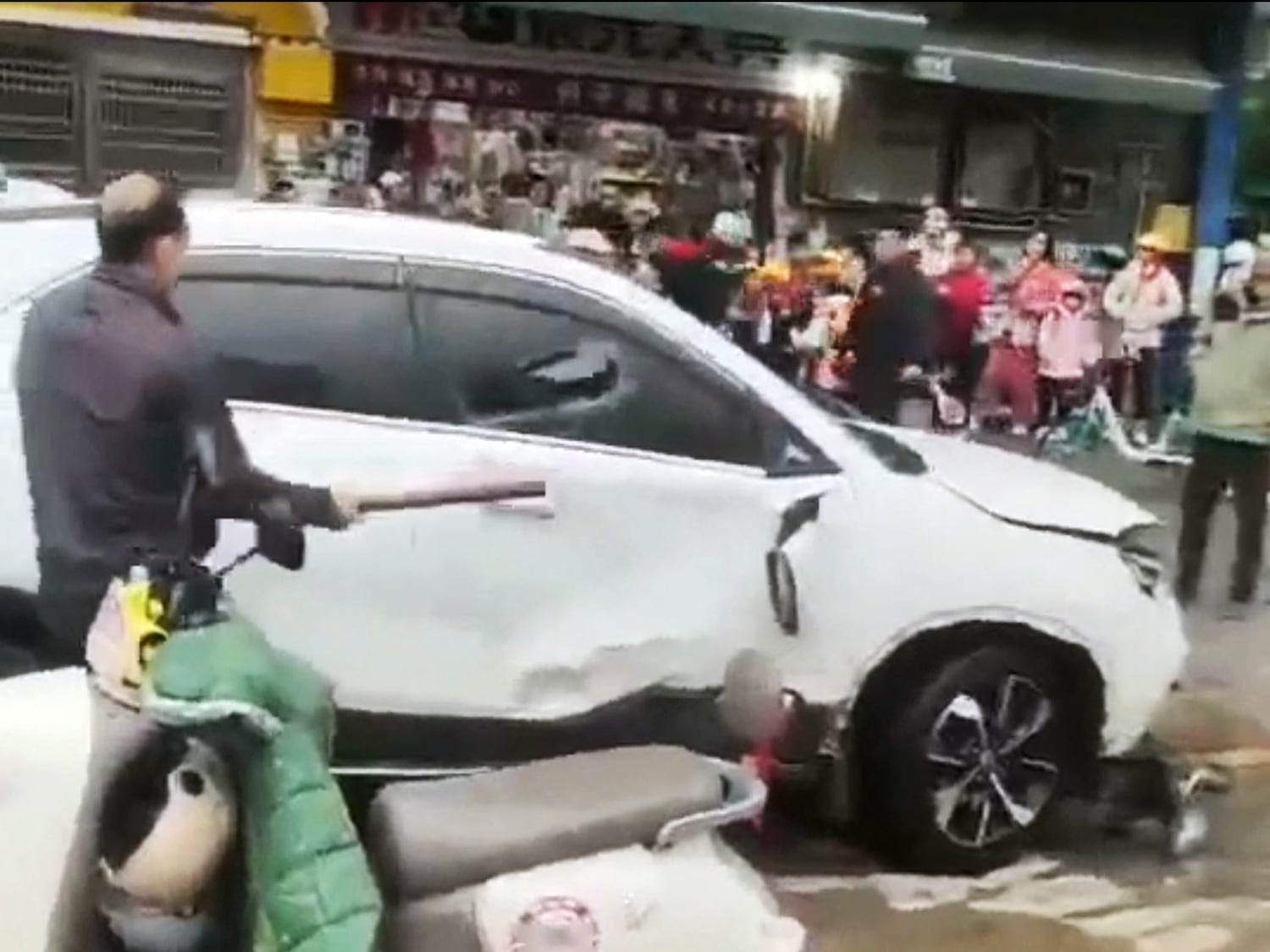China’s Communist Party is stepping up the use of big data to predict people’s behavior in a bid to identify “social risks” and prevent violent attacks on members of the public in the wake of the car killings in Zhuhai earlier this month.
“We should … deeply tap into the rich seams of political and legal data, strengthen data identification, screening, analysis and evaluation, and find ways to capture and identify risks and hidden dangers,” party law enforcement czar Ting Bai told officials on a recent inspection tour in the eastern province of Zhejiang, according to official reports.
Citing President Xi Jinping’s instructions to officials in the wake of the Nov. 11 fatal vehicle attack that left 35 dead in Zhuhai, Ting said the authorities should start responding to potential threats with preventive action “in a graded and classified manner.”
“[We must] improve our ability to make accurate predictions, precise warnings, and precise preventive measures,” he said in comments reported by the Supreme People’s Procuratorate, China’s state prosecutor.
China is reeling in the wake of a number of attacks on members of the public in recent weeks, including a fatal car attack at a stadium in the southern port city of Zhuhai this month that left 35 people dead and dozens more injured.
Since then, further violence has been making the headlines, including a fatal college stabbing and a car attack on students at a primary school in Hunan province.
Authorities in southern China are already sending local officials and volunteers to intervene in people’s marital troubles and to mediate disputes between neighbors in the wake of the fatal car ramming in the grounds of a Zhuhai sports stadium by a 62-year-old man surnamed Fan who was reportedly angered over a divorce settlement.
Analyzing big data
Now, local officials are being encouraged to set up systems that analyse huge amounts of big data to warn them of potential social tensions and disgruntlement, so they can try to intervene before such crimes are committed.
Local governments are expected to build “comprehensive governance centers,” Ting said.

Local officials, who have at their disposal an army of paid “grid workers,” local militias and unpaid volunteers, have been told to “make the work of security and stability maintenance their top priority.”
Public Security Minister Wang Xiaohong also told officials in the northeastern province of Liaoning last week that they should be using big data to help “proactively warn of risks.”
Kung Hsiang-sheng, associate researcher at Taiwan’s Institute for National Defense and Security Research, said such systems are extremely hard to implement in real life, however.
“Internet censors already filter and delete politically sensitive posts, but they have little ability to monitor happenings on the ground,” Kung said.
RELATED STORIES
China car killings could spark new round of security measures
China to probe marital, neighbor disputes in wake of car attack
China plans massive new center to house, control ‘big data’ on all of its people
“The only way they would be able to prevent and detect such crimes is if the person announced they were planning to kill people in a school or on the street in advance, say in an online forum,” he said.
He said there is unlikely to be much prior warning of such crimes online.
“They can’t investigate anyone who sounds disgruntled on the internet,” Kung said. “It’s much harder to use technology to prevent crimes … that are carried out with no prior online warning.”
‘Dissatisfaction and unrest’
Chiang Ya-chyi, professor of law and politics at Taiwan’s Ocean University, said there is plenty of big data available these days in China, however.
“China uses big data to monitor people’s every word and move on the internet,” Chiang said. “But there are still limitations, even under comprehensive monitoring.”
“If they strengthen the analysis of big data, they’ll need to invest more in manpower,” she said. “Are they going to trace and prevent any possible flashpoints of dissatisfaction and unrest, one at a time?”
She said the main cause of dissatisfaction in China is the economic downturn and the lack of say ordinary people have in their own lives.

She said social pressures would continue to build if the basic problem wasn’t addressed by the government.
Chinese dissident Gong Yujian, who now lives in Taiwan, agreed.
Gong said most people in China are “lying flat” and waiting out the economic downturn and increasingly autocratic governance under Xi Jinping, amid a major collapse of public confidence in the regime.
“When this confidence collapses, everyone from the lowest rungs to the middle class, outside the party and within the party, from intellectuals to entrepreneurs, ordinary civil servants to senior officials start to feel anxious, and see no hope for their personal future or their country’s,” Gong said.
“They leave, either by sneaking across the border or emigrating; those who can’t get out are forced to praise Xi Jinping,” he said. “Either that or they lie low, or even more extreme, they start hurting each other to demonstrate their loyalty.”
He said high-tech monitoring in the style of George Orwell’s dystopian novel 1984, won’t address these issues.
“As for using high-tech methods to create a 1984 situation where there are no blind spots in society, China under Xi Jinping’s rule already has that, yet they’re still unable to prevent vicious incidents [like the Zhuhai attack].”
Translated by Luisetta Mudie. Edited by Malcolm Foster
This content originally appeared on Radio Free Asia and was authored by Hsia Hsiao-hwa for RFA Mandarin.
This post was originally published on Radio Free.